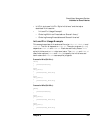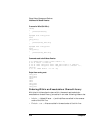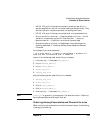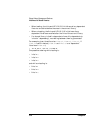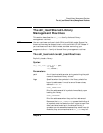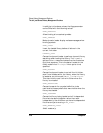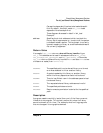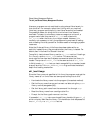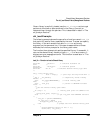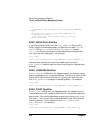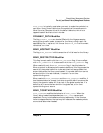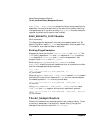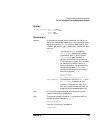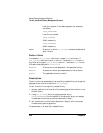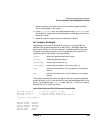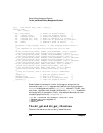
Chapter 6 219
Shared Library Management Routines
The shl_load Shared Library Management Routines
Once a library is explicitly loaded, use the shl_findsym routine to get
pointers to functions or data contained in the library; then call or
reference them through the pointers. This is described in detail in“The
shl_findsym Routine”.
shl_load Example
The following example shows the source for a function named load_lib
that explicitly loads a library specified by the user. The user can specify
the library in the environment variable SHLPATH or as the only
argument on the command line. If the user chooses neither of these
methods, the function prompts for the library path name.
The function then attempts to load the specified library. If successful, it
returns the shared library handle, of type shl_t. If an error occurs, it
displays an error message and exits. This function is used later in “The
shl_findsym Routine”.
load_lib — Function to Load a Shared Library
#include <stdio.h> /* contains standard I/O
defs */
#include <stdlib.h> /* contains getenv
definition */
#include <dl.h> /* contains shared library type defs
*/
shl_t load_lib(int argc,
char * argv[]) /* pass argc and argv from main */
{
shl_t lib_handle; /* temporarily holds library
handle */
char lib_path[MAXPATHLEN]; /* holds library path
name */
char *env_ptr; /* points to SHLPATH variable
value */
/*
* Get the shared library path name:
*/
if (argc > 1) /* library path given on command line
*/
strcpy(lib_path, argv[1]);
else /* get lib_path from SHLPATH variable
*/
{
env_ptr = getenv(“SHLPATH”);
if (env_ptr != NULL)
strcpy(lib_path, env_ptr);
else /* prompt user for shared library path
*/
{
printf(“Shared library to use >> “);
scanf(“%s”, lib_path);
}



